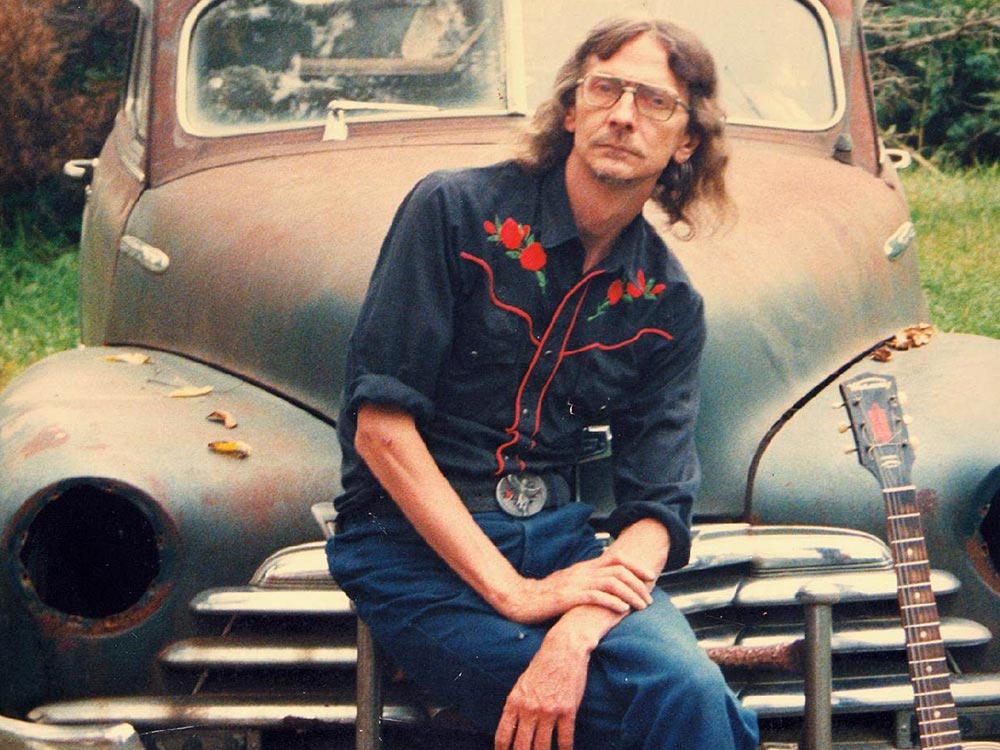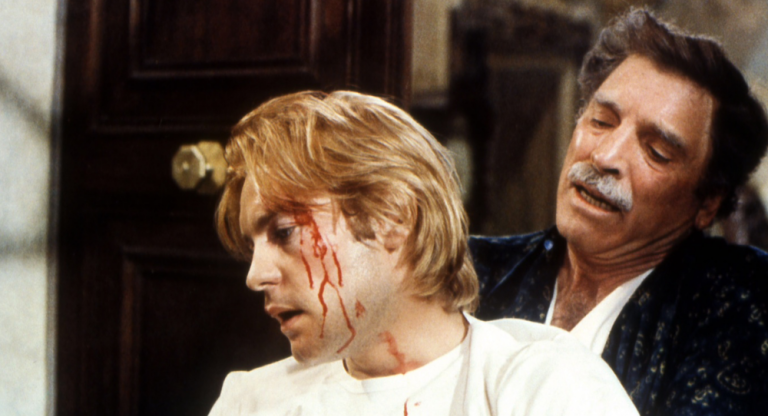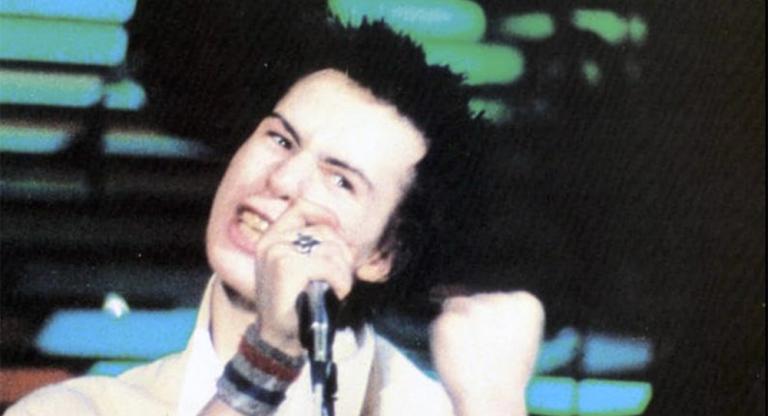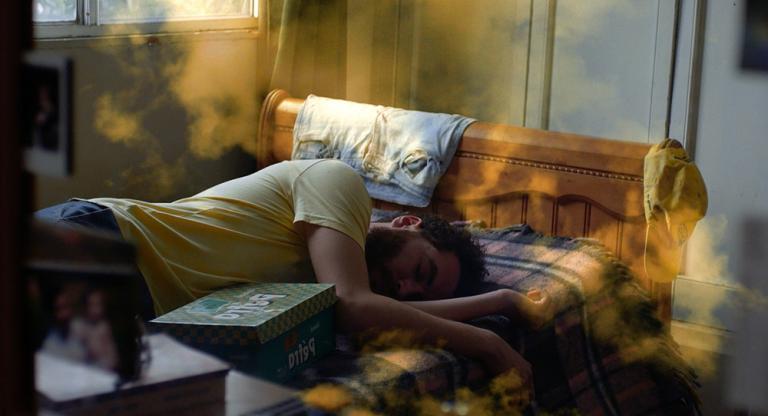Jamie Meltzer’s documentary Off the Charts: The Song-Poem Story (2003) provides a glimpse into a decades-old tradition involving a special relationship between aspiring songwriters and studio musicians. Ads would run in magazines: “Send us your lyrics!” Musicians would write and record the music to suit, and the playing field was leveled for anyone who could write a few lines. I previously wrote about Off the Charts in this column; today I am happy to be presenting a public screening and this interview with Meltzer about his film.
Cristina Cacioppo: I was wondering how you first came to learn about song poems? And what about it intrigued you?
Jamie Meltzer: I was going to grad school, and I was flipping through records at a local record store. I came across this compilation that looked interesting. It's called I Died Today, and it was Rodd Keith doing song poems. It told the story of song poems on the back cover. Immediately, I was hooked and wondered: Who is the kind of person who does this? It generated a lot of questions. The kind of documentaries that I love to do the most come from an effort to get some answers to those questions.
CC: Did you immediately know that it was something you wanted to make a documentary about?
JM: Right away. It says so much about what art is, and it's so American, deeply American, that confluence of artistic imagination—being an artist and expressing oneself—and where that hits this hucksterism and almost scam aspect that song poems have. Then it was just a matter of getting in touch with people, first the folks who do the music. I felt they would be the hardest people to convince to do the documentary, and found a couple that were really open to working with me. And then it was following the trail of breadcrumbs from one person to another, trying to find the most interesting songmakers in that period of time. This was the late ’90s / early 2000s, early internet days. I did a lot of internet searches, and people connected me to people, but then I also found a lot of songwriters through looking in the Library of Congress, since many of the song poems are copyrighted. In the copyright office you can look up names and find out details on the songwriter. You're just following one thing as it leads you to another, and you get deeper and deeper into hopefully a really interesting rabbit hole.
CC: When you first approached the songwriters, was it easy to get them on board to be part of the documentary? Or did it take some convincing?
JM: I would usually just very sincerely express admiration for the work they were doing. Almost everybody was really excited to be involved in the film. They were excited to have someone interested in their work and excited to get their work out into the world, to get people to be able to listen through the documentary to their words and their music.
CC: It could have easily veered into the territory of seeming exploitative, but you do a good job of treating everybody with respect. Could you talk about your approach to making sure that it did not appear that you were making fun of anybody?
JM: It was really important to me. It's such a marginal subject, in the sense that there's so much humor and absurdity that there's a real danger here of laughing at people. I was a very sincere, excited person trying to learn more through making this film about people and why they do the things that they do. And I see song poems, even though they have a lot of humor, as this incredibly American and distinct art form. The film [starts] at a humorous place with the story of the song poem "Blind Man's Penis," a song which is very humorous. Then, slowly, the film shifts tone, so it becomes more and more heartfelt and serious. I start with something funny and absurd, then I start introducing layers of emotion and pathos and sincerity. Hopefully, by the end, people have a deep appreciation of the song poem industry.
CC: The film includes music video–type segments. Was that collaborative with the song poem writers?
JM: Yeah, I definitely thought of them as music video interludes in the film. For me, it was a way to collaborate with the people that I was representing, of actualizing their dream—being able to have a produced music video to accompany their songs. [I wanted] to immerse the viewer in a song and find a visual way to explore and experience the music that's being presented. I felt like the music video was a perfect medium for that.
CC: Did you shoot on film?
JM: It was shot on 16mm film in the late ’90s. That wasn't as unusual as it would be today, to work with film. There were filmmakers working with video, but there was a huge difference in quality between film and video of 1999/2000. In film school I'd started off shooting on 16mm film, so I was really excited to have the opportunity to make the whole film on film. This was my student film. It was supposed to be a short film, but I made it into a feature because I started exploring and adding to the story and finding more and more layers to it. At some point, shooting video was something that I thought about. But there was something about the subject matter intersecting with celluloid that made sense to me. When you shoot something on film, both as a filmmaker and [for] the audience, there's a layer of importance. It is a way to memorialize a subject on film, even if it is more expensive. So it sort of elevated the subject matter in a way that was needed and appropriate. Later I shot a few projects on video, and those don't hold up as well as this. They're very dated.
CC: What was the trajectory of the film? What festivals did it play, and how was it distributed?
JM: As a student film, I didn't make it with distribution in mind. Of course, I wanted it to be seen by as many people [as possible], and I had aspirations for it, but I didn't really know much about the distribution landscape. Then when it was at a rough cut stage, a friend of mine invited me to show the first few minutes at a local library in San Francisco. Someone from the PBS series Independent Lens just happened to be sitting in the audience and was really captivated by the story and the humor, and they ended up being the distributor for the film. It aired on Independent Lens on PBS in 2003. It only played a couple of festivals before that, including South by Southwest, where it premiered. And then soon went onto TV, where obviously it reached a lot more people than it would [have] just doing a festival run. And then we did something really fun with distributing the film. We played in a number of cities like Chicago, where we would show the film in a theater or in a nightclub. And then a band would come on afterward and do a set of song poems. That was a perfect way in which to exhibit this film. One of the studio musicians, David Fox, says that he likes to imagine what the song poem writers look like.
CC: I was wondering if the writers watched the film and had any reactions? Or if, at any point, some of the poem writers met the musicians?
JM: David Fox, whose real name is Art Kaufman, is a huge fan of the film. With everyone in the film, I was concerned about them feeling like it honored their experience, even though it did contain all these elements of absurdity and humor. Everyone really loved it at the time, when it was released. [They were] really excited that it got their work out. David/Art met with (song poem writer) Gary Forney for the first time, and that was great. You know, it's always a little awkward when you're meeting someone that you've been collaborating with. In the film there's a lot of times where the songwriter who's doing the lyrics feels like the musician takes this other direction that doesn't necessarily delight them. So there's a little bit of tension there. In some ways, Gary Forney was an interesting case. The film ends up being very much about him and his ambitions, and I feel like it's a very sincere piece that honors the work that he did. At first he really enjoyed the film, and he toured with it—he did Q&As. After a few years he went full circle and changed his opinion on the film and now really hates it because he feels like it puts him in this bucket of other writers that he doesn't appreciate.
CC: Have you kept up with the song poem industry and seen how it's changed with developments in social media and YouTube?
JM: Not really! I know that another impact of the film was that it was really great for the business of the studio musicians like David Fox. He's got a lot of songs submitted to him through people that were excited about song poems after seeing the film. My sense is that [the industry] hasn't adapted to the digital age. It was already a relic even at the time I made [the film]. The heyday for song poems was in the vinyl era of the ’50s and ’60s, where bands were in studios and where people couldn't just start their own band, like they would later. So it's something that hasn't necessarily aged well.
CC: Did you have any people that you wish that you could have tracked down? Like a favorite song or favorite writer that you were looking for and couldn't find or couldn't get interested in being part of the film?
JM: There was no one that turned down being in the film. But there were definitely a lot of great lyricists, too. They were difficult or impossible to track down. A lot of classic song authors from the ’60s and 70s who wrote stuff that Rodd Keith did I would have loved to talk to. As everyone says in the film, Keith elevated the art form, in the beauty of [his] song poems, and took it to another level musically. And I would love to know more about how lyricists and song poets responded to some of the more strange things that Rodd Keith would do, like doing an entire song on a Mellotron with really bizarre flutes. What was their reaction to that? Did they embrace it? Or were they kind of horrified? I would have loved to track them down, but it proved to be impossible. It was too long ago.
Off the Charts screens tonight, September 28, at Nitehawk Prospect Park as part of the series “The Outskirts,” co-presented by Screen Slate.



